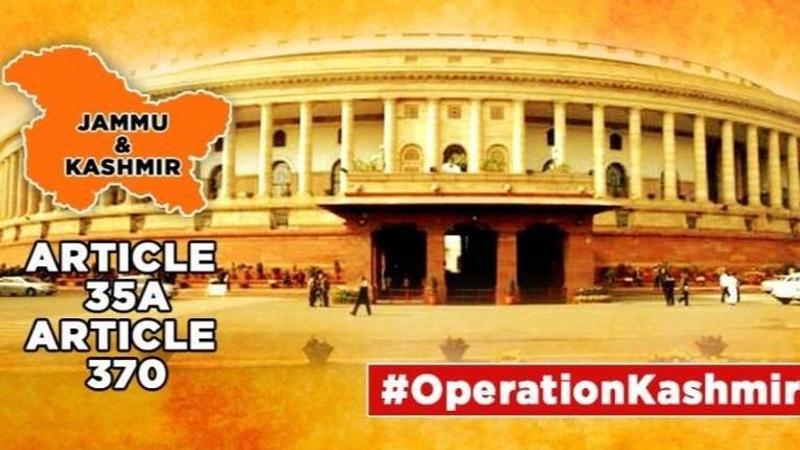Published 10:44 IST, August 5th 2019
J&K: How can the government abrogate Article 35A and Article 370? Here's a legal opinion
Senior advocate Aryama Sundaram has given his legal opinion on how the government can abrogate Article 35A and Article 370

Article 35A has been a debatable part of the Constitution among the people. There are those who are in favour of the abrogation of the Article and then there are others from the state who insist that the Article must prevail at all costs and Jammu and Kashmir must continue to retain its special identity through the special rights bestowed by 35A.
Giving a legal opinion on the matter, Senior advocate Aryama Sundaram speaking to Republic TV, stated that the events happening in the state of Jammu and Kashmir are 'inevitable'. "It has been galloping over a period of time and it was only a question of when and where it was going to happen", he said. Claiming that it is a 'perpetual issue', he expressed that the present government (Bharatiya Janata Party) has made it very clear that they do not want 'islands' within the country and are looking at an integrated India.
Calling the special status given to the State of Jammu and Kashmir via, Article 35A, 'incongruous', he said, "This is something like you have an Island amidst a Union which is standing out. There are certain political compulsions. Don't forget that Article 35A was introduced way back in 1954 and that it does not come through a constitutional amendment. It was brought in by the Presidential Order and that it was passed in accordance with the President's powers."
Claiming that many people have felt that Article 35 A was a thorn in the side, advocate Sundaram said, "The application if 35A is making a big discrimination among the citizens of the state. When one accepts the continuance of Article 370 and 35A, it automatically means that Kashmir is being treated as separate, as different and the rest of India and once that is there, all are further steps in the same direction".
READ: J&K: MoS Home G Kishan Reddy Speaks On Kashmir Situation, Says 'Don't Propagate False Information'
He further said, "if things had gone well, then there was no question of terrorism, violence or danger. But today what has happened with Kashmir, whether we would like to accept it or not, but hard situations call for hard measures and given the present escalated the situation, extreme steps will have to be taken to curb the situation and we as a country have to decide if Kashmir is a part of India or not".
Concluding his stance over the Jammu and Kashmir situation, the senior advocate said, "I believe that it is high time that Kashmir merges with the ethos of the entire country so that we are truly a Union".
What does Article 35A entail?
Article 35A allows the Jammu and Kashmir legislature to define who are permanent residents of the state. It was inserted through the Constitution (Application to Jammu and Kashmir) Order, 1954, which was issued by President Rajendra Prasad under Article 370, on the Centre' s advice i.e.by the advice of the cabinet of India's then PM Jawahar Lal Nehru.
As per the J&K Constitution which was adopted in 1956, it defined a permanent resident as someone who was a state subject on May 14, 1955, or who has been a resident of the state for ten years and has lawfully acquired immovable property. A non-state subject cannot buy land or settle permanently in Jammu and Kashmir. It also ensures the permanent resident's special rights and privileges in government jobs, scholarships, aids and acquisition of property. The spirit of the article flows from 1827 and 1832 state subject laws of then Dogra ruler
Updated 11:44 IST, August 5th 2019




